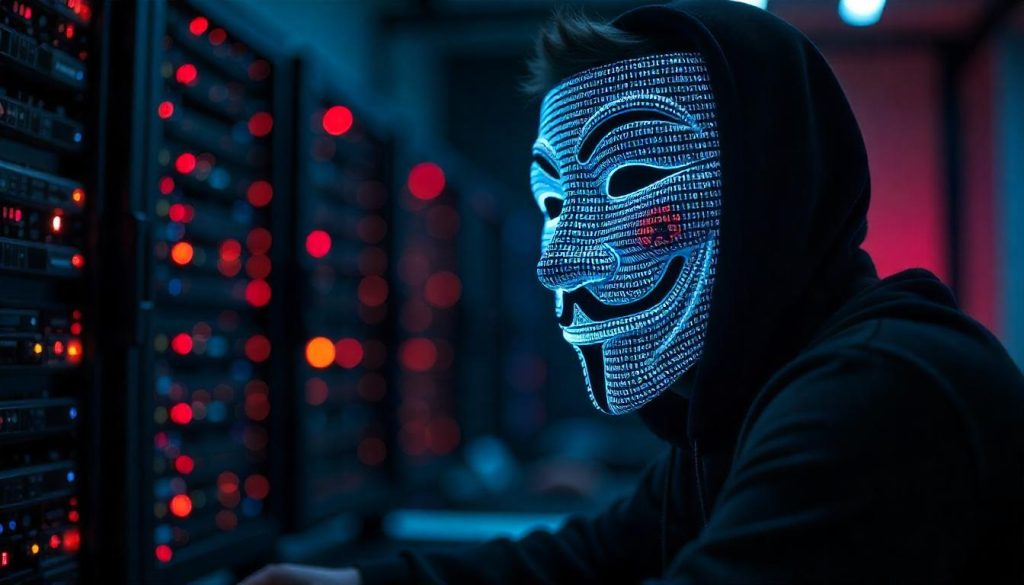In the vast digital universe, few names evoke as much mystery and intrigue as “Anonymous.” They wear no uniform, hold no formal leadership, and claim no official headquarters. Instead, they manifest as an ever-changing collective of individuals united by a common goal: to expose injustice, challenge corruption, and push back against authoritarianism — often through hacking and digital protests. But the big question remains: can Anonymous be stopped?

Understanding Who Anonymous Is
Before we try to answer that, it’s important to understand who — or what — Anonymous actually is. Unlike traditional organizations, Anonymous is a decentralized movement. It isn’t a club with members or a company with a CEO. Rather, it’s an ideology — a banner under which like-minded digital activists (often called “hacktivists”) operate. This lack of structure makes Anonymous incredibly difficult to define, let alone stop. There’s no membership list, no chain of command. If you believe in the cause and follow certain norms, you’re Anonymous. Anyone can be Anonymous, and no one speaks for all.
How Anonymous Operates
Typically, Anonymous targets government institutions, major corporations, or groups they see as corrupt, oppressive, or hypocritical. Their actions vary widely — from Distributed Denial of Service (DDoS) attacks and website defacements to leaking sensitive data. Their targets have included the Church of Scientology, ISIS propaganda networks, government entities in the U.S., Russia, and others, and even billion-dollar corporations like PayPal, Sony, and HBGary Federal. But because they operate behind layers of anonymity, tracing them is incredibly difficult.
The Tools of the Trade So, how do they stay hidden? Anonymous members often use VPNs, The Onion Router (Tor), encrypted messaging apps, and custom-built tools to mask their identities and locations. Their digital fingerprint is intentionally scattered, encrypted, and masked — making tracking them like chasing shadows in a dark alley.
Can Law Enforcement Catch Them?
Yes, to some extent. Over the years, several individuals associated with Anonymous have been arrested. For instance, “Operation Payback,” a major campaign by Anonymous in 2010, led to arrests across the UK, U.S., and the Netherlands. These crackdowns often occur when hackers slip up — failing to hide their IP address or using a compromised device. Law enforcement agencies like the FBI, Interpol, and Europol have invested time and resources in tracking down key figures involved in hacktivist operations. But here’s the catch: arresting individuals doesn’t stop Anonymous. The movement simply continues, because it’s not built around one person or group. Think of it like trying to stop a swarm by catching a few bees.
The Strength in Anonymity
What makes Anonymous so resilient is, ironically, its anonymity. There’s no headquarters to raid, no offices to shut down, and no leader to arrest. Even when members are caught, others often pick up where they left off. It’s like trying to grab water with your bare hands — it slips through, reforms, and continues to flow.
Is Anonymous Legal?
This is a gray area. Some actions taken by people who claim to be part of Anonymous — like exposing government surveillance or protesting censorship — can be seen as legitimate activism. However, breaking into private servers, leaking classified data, or launching cyberattacks crosses into illegal territory. Governments usually classify these acts as cybercrime, even if the intentions are political or ethical. That puts Anonymous at the center of a debate: are they heroes or criminals?
Public Support and Social Media Power
Another reason Anonymous is hard to stop is their broad base of support. Many people see them as digital Robin Hoods — unafraid to challenge power. Their operations often go viral, gaining global media attention. Social media plays a huge role in amplifying their message, especially on platforms like Twitter, Reddit, and Telegram. This public exposure can make it politically tricky for governments to act. Arresting or silencing people associated with Anonymous might spark backlash, especially if the target is a whistleblower or exposing corruption.
The Risks They Face
Still, being part of Anonymous isn’t without risks. Hackers risk arrest, prosecution, or even being targeted by rival hacker groups. Governments are constantly upgrading their cyber defenses and surveillance tools. Mistakes — even small ones — can lead to exposure. Moreover, infiltration is a real concern. Law enforcement agencies have, in the past, posed as fellow hacktivists to gain trust and gather intelligence. This cat-and-mouse game adds another layer of complexity.
Can Anonymous Be Stopped?
So let’s circle back to our original question: can Anonymous be stopped? The honest answer is — probably not in the traditional sense. You can arrest individuals, disable certain channels, or thwart specific operations. But you can’t shut down an idea. And Anonymous is, more than anything, an idea. As long as there are people with access to the internet, digital skills, and a desire to fight perceived injustice, the spirit of Anonymous will live on. Stopping Anonymous would require more than arrests. It would involve addressing the root causes that motivate their actions: censorship, corruption, inequality, and lack of transparency. Without tackling these issues, silencing the movement becomes a game of digital whack-a-mole — one hacker goes down, two rise up.
The Future of Hacktivism
With technology advancing rapidly — from AI to blockchain to quantum computing — the future battlefield of hacktivism will evolve. Anonymous may adapt or fragment into newer collectives. But the core principles — freedom of speech, transparency, digital rights — are unlikely to fade. For now, Anonymous remains an unpredictable force — sometimes controversial, sometimes celebrated — but always impossible to ignore.
Final Thoughts
Can Anonymous be stopped? Technically, parts of it can be disrupted. But the movement, as a whole, thrives on decentralization, anonymity, and shared purpose. It represents the power of collective action in a digital age — and that power is not easily contained. As long as there are people willing to speak out from behind a screen, Anonymous will remain — watching, waiting, and sometimes, acting.